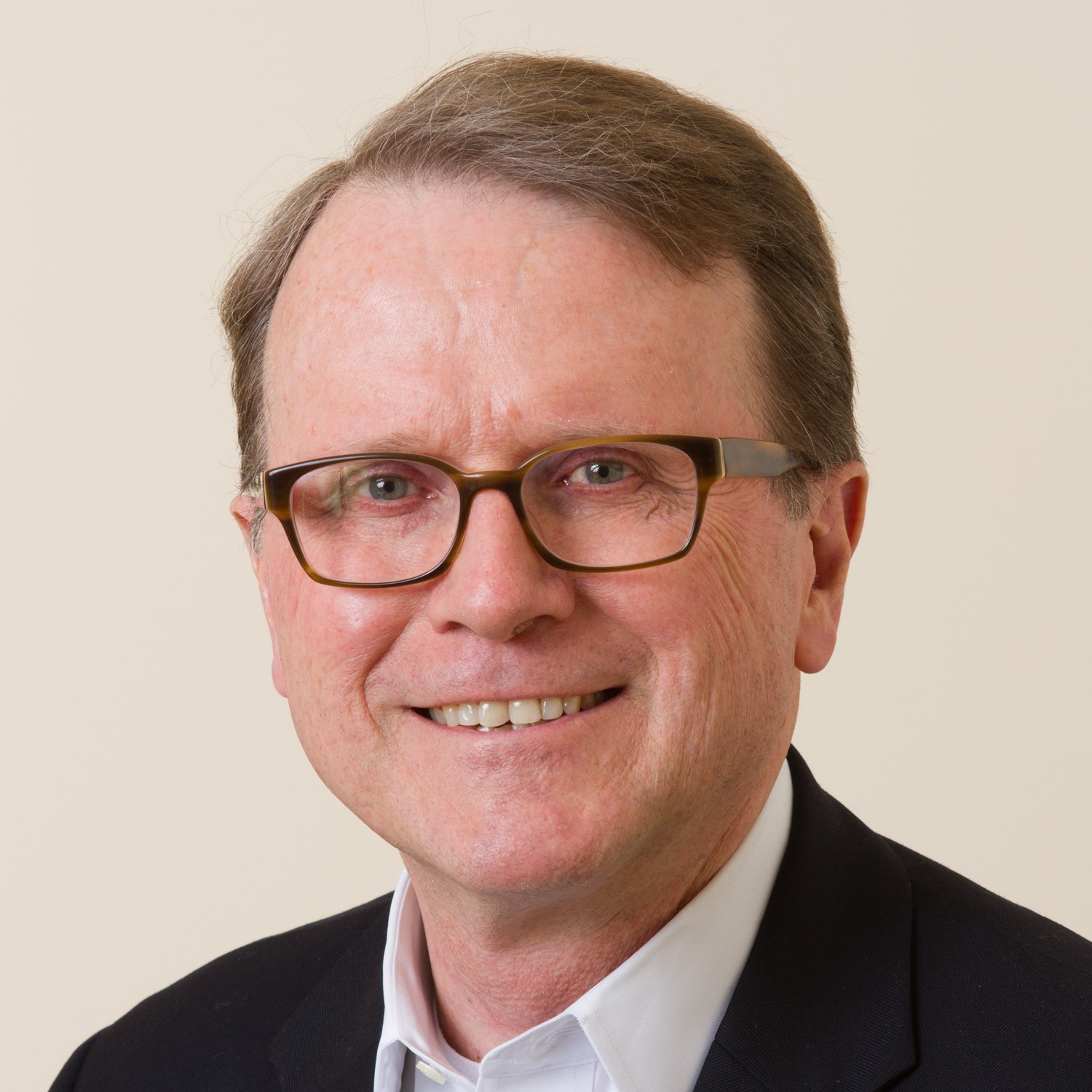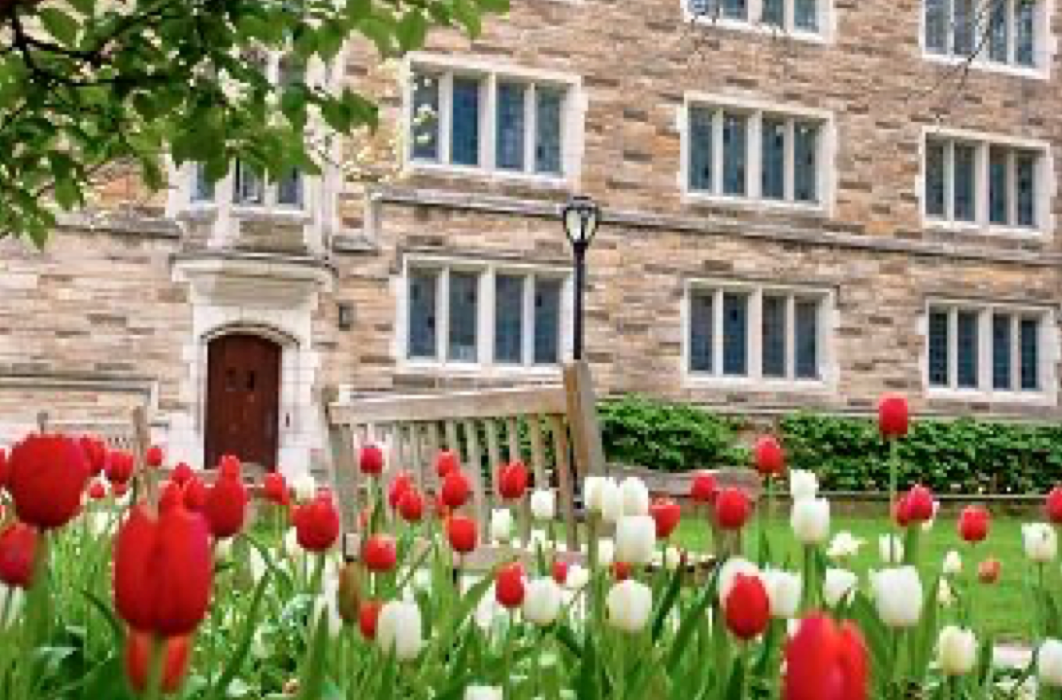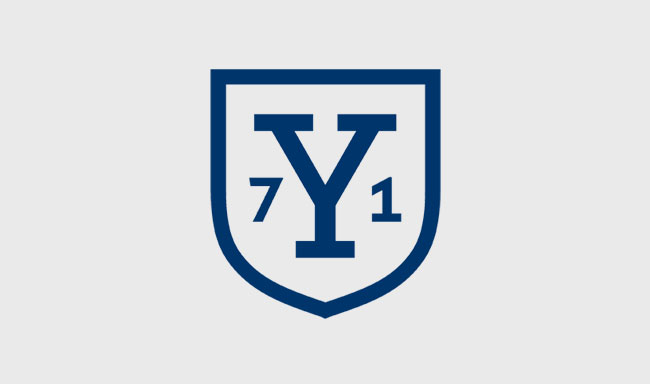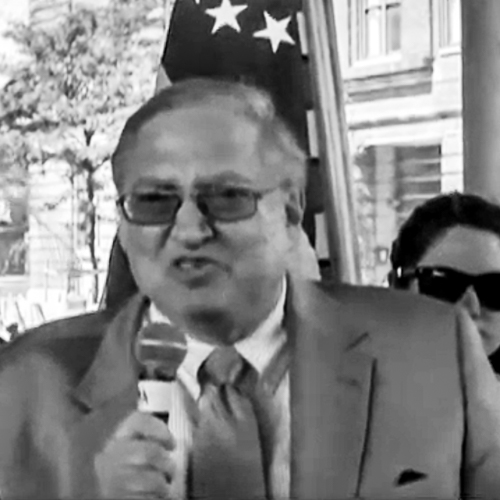Class of 1971 Service of Remembrance
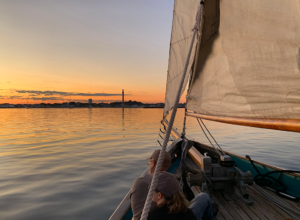
Dear Classmates and Friends,
The Committee for the Class of 1971 Service of Remembrance invites you to join us to view the service on May 9, 2021 from 11:00–11:30 am ET. The registration link is below.
https://us02web.zoom.us/webinar/register/WN_1dtzCKxEStGY8PSJAbb0Kw
You may also stream the service on demand at your convenience at
We hope you will join us in remembering and honoring the 150 members of our class who have died. The service celebrates their lives, and the times we shared, through videos, music, and vintage photographs. It beautifully evokes our Yale experiences and the dear friendships that were the fruit of our time there. It also invites reflection on the great mysteries of life, and death, through readings, poetry, and imagery.
This multimedia presentation is the fruit of months of work, and we know it will make this virtual reunion more personal and meaningful for you. One classmate who previewed it described it as “one of the most moving tributes to the departed that I have ever seen.” We hope very much you will also reach out to friends and family members of those classmates who have died and share the links to the service.
Remembering our time at Yale and celebrating our dear departed friends has refreshed in all of us on the committee a deep sense of gratitude. It’s been a blessing preparing this service together. We hope you will take the time to participate in this communal act of remembering.
Sincerely,
The Committee for the Class of 1971 Service of Remembrance
Bliss Williams Browne (Chair)
Preston Athey
Bob Bruner
Anne Ghory-Goodman
Michael Kline
Elwyn Lee
Kurt Schmoke
Jeremy Stone
Barbara Twigg
Lupi Robinson (ex officio)
Three Big Reasons to Attend the Yale ’71 Reunion
Bob Bruner writes:
Two years ago, Lupi Robinson and I agreed to co-chair the 50th reunion of our class. We wanted to give something back to classmates who had made our time at Yale so rich, to honor our shared experience, and to discover who we all are today. The value of such ends seems obvious to me. Yet the most frequent question I have heard begs why one should attend a reunion.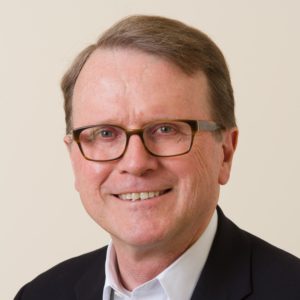
The questioners may have attended few, if any, of the previous reunions, lost touch with classmates, don’t think any of their friends are coming, live at great distances from New Haven, recoil from big lawn parties, and/or have moved on from an identification with Yale ‘71. Their demurrals resonated even with me over the years. And yet our 50th warrants an exception: of all the reunions, this is the big one, traditionally the best-attended, and for many of us, the last one. Whether or not you’ve attended a previous reunion, this is the one you should make an extra effort to attend.
Aside from the novelty of the 50th, three stronger three reasons call us to the reunion.
Make friends. That is, make, renew, and rediscover friends. Research finds that regular engagement with friends is an attribute of people who age well.[1] Friends and acquaintances enrich us. The pandemic has taught us all the costs of social distance. Rather than the CDC’s six-foot prescription, I mean the loss of the kind of connectivity with others that enriches our lives in things great and small. As we are already finding, our peers are passing away. Sustaining a circle of friendship takes constant care, much like tending a garden. The problem of making new friends is finding some common frame of reference on which to build a bond. Shared experience is one of the best foundations for new friendship. And the transformation during college years is a durable shared experience. In the hundreds of hours of calls, Zooms, and meetings for the reunion, I’ve met incredibly interesting classmates, whom I never really knew back then. These are people I want to get to know better. A great reunion is first and foremost about making friends. The lawn parties, dinners, and hoopla pale in comparison to the conversations you will have, the one-to-one chats and small-group gatherings where you connect with people and insights in ways that will move you.
Make meaning. Erik Erikson, a developmental psychologist at Yale during our time there, argued that the central task of people in old age is to look back, judge what has or has not been accomplished, and draw fulfillment or acceptance about the life so lived.[2] I think a reunion can help with that task—not mainly in reminiscing about college days, but in connecting those days with what followed. We all have changed since graduation. What role did the college experience play in that growth? The Greek philosopher, Heraclitus, said that you can’t step into the same river twice: no one at age 71 is the same person he or she was at 21. How have we changed? The gift of a reunion is to illuminate some insights.
Make a society. Surveys document the American declines in social trust, in the acceptance of norms, and in the extension of respect to one another.[3] These declines are associated with declines in participation in purely civic and social organizations, such as bridge groups, singing groups, fraternal and religious organizations, and charities[4]—to the list I would add alumni gatherings. Such organizations build trust and social capital, as Robert Putnam described In Bowling Alone.[5] The decline in social trust and social capital has two bad consequences. The first is a weaker sense of well-being. Strong social capital appears to have greater effect on a sense of personal well-being than great wealth or good health.[6] Second, at the level of communities and nations, weaker social capital can impair effective market exchange and the mobilization of resources necessary to produce public goods[7] such as clean environment, justice, and defense. To attend the class reunion is to take a step in building social capital and strengthening the social fabric.
By now, you have received email and snail-mail announcements about our 50th reunion. The Covid pandemic has restructured—but not thwarted—our intentions. To “attend” reunion entails both (a) joining virtual gatherings on May 1, 2, 8, and 9, 2021, and (b) coming to our in-person reunion at Yale in late spring 2022 (dates to be announced).
Join us at the Yale ‘71 reunion. Make friends. Make meaning. And make a society.
Robert F. Bruner
Endnotes
[1] The famous study of Harvard graduates cites the avoidance of social isolation in addition to not smoking, avoiding alcoholism, and sustaining healthy weight, regular exercise, and stable marriage, among others. See George Vaillant, Aging Well: Surprising Guideposts to a Happier Life from the Landmark Study of Adult Development.
[2] See Erik Erikson, Childhood and Society.
[3] See https://www.aei.org/politics-and-public-opinion/does-america-have-a-trust-problem/.
[4] “The Space Between: Renewing the American Tradition of Civil Society,” United States Congress, Joint Economic Committee, Dec. 18, 2019 https://www.jec.senate.gov/public/index.cfm/republicans/analysis?ID=78A35E07-4C86-44A2-8480-BE0DB8CB104E
[5] Putnam, Robert D., Bowling Alone: The Collapse and Revival of American Community, New York: Norton, page 183.
[6] Helliwell, J. F., Aknin, L. B., Shiplett, H., Huang, H., & Wang, S. (2018). Social capital and prosocial behavior as sources of well-being. In E. Diener, S. Oishi, & L. Tay (Eds.), Handbook of well-being. Salt Lake City, UT: DEF Publishers. DOI:nobascholar.com.
[7] Durlauf, Steven N., and Marcel Fafchamps, (2004) “Social Capital,” Working Paper 10485, Cambridge, MA: National Bureau of Economic Research, https://www.nber.org/system/files/working_papers/w10485/w10485.pdf.
Virtual Reunion Program Schedule and Content Links
Thanks to all speakers, attendees, and program organizers for a fascinating and memorable virtual reunion. To access the content for each session, click the link below the session description.
Saturday, May 1, 2021 | 4:00 pm ET
“Hot Zone: Perspectives on the Pandemic”
Moderator: Richard Skolnik, MPA (BR) — Author, Global Health 101; Instructor for Yale Coursera course “Essentials of Global Health”; former Director for Health and Education for South Asia Region at World Bank
Panelists
James Rothman, PhD (BR) — Sterling Professor of Cell Biology and Chair of the Department of Cell Biology, Yale School of Medicine; Nobel Prize in Physiology or Medicine 2013; former Vice Chairman, Sloan Kettering Institute for Cancer Research
Dori Zaleznik, MD (BK) — Retired (all positions); Infectious Diseases Specialist; Associate Clinical Professor of Medicine, Harvard Medical School; bacterial vaccine research, Channing Laboratory; Hospital Epidemiologist; developer of Infectious Diseases section UptoDateTM, Commissioner of Health & Human Services, Newton, MA
Andrew Wiesenthal, MD (SM) — Pediatric Infectious Diseases Specialist; Managing Director, Life Sciences and Health Care, Deloitte Consulting LLP; former Associate Executive Director, Permanente Federation; served on the Federal Health Information Technology Standards Committee and co-chaired its Precision Medicine Task Force.
Sten Vermund, MD, PhD — Dean and Anna M. R. Lauder Professor of Public Health, Yale School of Public Health; Professor of Pediatrics, Yale School of Medicine; infectious disease epidemiologist and pediatrician
Sunday, May 2, 2021 | 4:00 pm ET
“Public Service: Off of the Pedestal and into the Crosshairs”
Moderator: Alan Yuspeh, JD, MBA (PC) — former SVP, Chief Ethics and Compliance Officer HCA Healthcare 24 years in Washington, DC in senior staff positions in the US. Senate, as a law firm partner, and as a consultant with McKinsey & Co.
Panelists
Hugh Auchincloss, MA, MD (TR) — Principal Deputy Director, National Institute of Allergy and Infectious Diseases, NIH; transplant surgeon and former Professor of Surgery, Harvard Medical School; former Director, Mass General Hospital Laboratory in Transplantation Immunology
Robert Cottrol, PhD, JD (TD) — Harold Paul Green Research Professor of Law and Professor of History and Sociology, George Washington University; student of American and Comparative Legal History; career reserve officer, U.S. military
James Donchess, LLB (JE) — Mayor, Nashua NH (named best place to live in America by Money Magazine); former plaintiff attorney, focused on sexual harassment and employment discrimination
Bil (“Snake”) Johnson (MC) — career public school teacher; teacher-educator; progressive school reform advocate; charter school founder; Author, Right Time, Right Places
Saturday, May 8, 2010 | 2:00 pm ET
“Class Survey Highlights: Picturing the Class -- Reflections on the Journey”
Moderator: Tim Powell, MBA (BR) — President, The Knowledge Agency; thought leader and organizational catalyst in knowledge and intelligence strategy and economics; author, The Value of Knowledge: the Economics of Enterprise Knowledge and Intelligence; Senior Fellow, The Conference Board; former management positions at Opinion Research Corporation, KPMG, and PwC; publisher, yale71.org
Presenter: Richard Cech, MA, JD, SBE (MC) — Federal large bank supervisor (New York Fed), former investment banker; operational risk consultant; long-time JP Morgan Employee; photographer, lecturer and natural historian; author and photographer. Butterflies of the East Coast (Princeton Univ. Press); curatorial entomology affiliate at Yale Peabody Museum; past president of Linnaean Society of NY
Saturday, May 8, 2021 | 4:00 pm ET
“Roads Less Taken”
Moderator: Karen Lawrence, PhD (DC) — President, Huntington Library, Art Museum, and Botanical Gardens; former President, Sarah Lawrence College; former Dean, School of Humanities at the University of California, Irvine (UCI); James Joyce scholar; Board Member National Humanities Center
Panelists
Alex Harris (DC) — photographer; Duke University Professor Emeritus; founder, Duke University Center for Documentary Studies and Double Take Magazine; author, The Idea of Cuba, and co-author: River of Traps: A New Mexico Mountain Life
John Lissauer (MC) — composer and arranger for film, TV, animations, albums; inductee, Grammy Hall of Fame for Leonard Cohen’s "Hallelujah"; recipient a Canadian Academy Award (best score) and a Clio Award “Campaign of the Decade” (James Garner Polaroid Campaign)
Billie Tsien, MA (PC) — Partner Tod Williams Billie Tsien Architects; selected projects include the Barnes Foundation, Asia Society Hong Kong and the Obama Presidential Center; winner of the Presidential Medal of the Arts and the Praemium Imperiale; President of the American Academy of Arts and Letters
Sunday, May 9, 2010 | 11:00 - 11:30 am ET (musical prelude at 10:55 am)
Service of Remembrance
This special multimedia service of thanksgiving, poetry, scripture, music, and photography will honor and celebrate the 150 members of our class who have died since we entered Yale. Please join us and help spread the word to family members of those who have died with whom you are in touch by forwarding the Zoom invitation when you receive it.
Officiant: The Rev. Bliss Williams Browne, MDiv, MM (DC) — Episcopal Priest, former banking executive, founder and President of Imagine Chicago (the inspiration for a global movement of
social innovation); author, Ten Years of Imagination in Action and Women Alive: A Legacy of Social Justice
Participants: Preston Athey (SM), Robert Bruner (SY), Anne Ghory-Goodman (BK), Mike Kline (DC), Elwyn Lee, (SY) Kurt Schmoke (DC), Barbara Twigg (DC), and Jeremy Stone (MC).
Sunday, May 9, 2010 | 4:00 pm ET
“Climate Change: Realities, Risks, Opportunities”
Moderator: Frances Beinecke, MS, LLD (Hon) (ES) — career environmental activist; former President National Resources Defense Council; Member, Advisory Board MIT Energy Initiative; former service as Fellow, Yale Corporation, Co-chair, Leadership Council, Yale School of the Environment
Panelists
John Aber, PhD (BK) — University Professor of Environmental Sciences, former VP of Research and Provost, University of New Hampshire; recipient of Yale’s Wilbur Cross Medal for achievements in scholarship, teaching, and service, author of Terrestrial Ecosystems and The Sustainable Learning Community
Anthony Leiserowitz, PhD, Senior Research Scientist, Yale School of the Environment; Director, Yale Program on Climate Change Communication (YPCCC)
Walt Mintkeski, MS (PC) — Environmental Engineer, energy efficiency consultant; volunteer citizen activist for The Sierra Club, Oregon League of Conservation Voters, Johnson Creek Watershed Council, The Nature Conservancy in Oregon, and Citizens Climate Lobby; Lifetime Conservation Achievement Award from The Nature Conservancy (2011).
Merideth Wright, JD (BR) — Founding judge of Vermont Environmental Court (1990-2011), former environmental lawyer; writer, speaker, and international consultant on environmental and judicial topics associated with the Environmental Law Institute as Distinguished Judicial Scholar
Why were we admitted to Yale?
Our thanks to Harry Levitt for passing along this gem:
In 1967, University policy for undergraduate admissions was summarized by President Kingman Brewster in a letter to the then Director of Admissions. This statement, which has been reaffirmed on subsequent occasions, is the foundation on which specific selection criteria are based. It offers the primary orientation to all those who will be engaged in the selection process.
In order to ensure that admission policy accurately reflects institutional objectives, it is reviewed periodically by the President and Fellows of the Yale Corporation and by a faculty advisory committee on undergraduate admissions. In 1968 the policy was extended to apply to women as well as men. In 1973, the Corporation expressed strong, continuing interest in the admission of scholar-athletes and alumni children.
The University also acknowledges that the objectives expressed in the document continue to be pertinent at a time when we consider increasingly diverse generations of Yale applicants. We ask that you consider the guidelines outlined by President Brewster in the spirit in which they were written while applying them to men and women from an extraordinary array of backgrounds, cultures and religions from around the world.
The letter in its entirety follows:
YALE UNIVERSITY OFFICE OF THE PRESIDENT
March 15, 1967
Mr. John Muyskens, Jr. Director of Admissions 111 Prospect Street
Dear John:
As a new member of the senior Admissions staff and hence of the Committee which will have to winnow the list of applicants this spring, you asked me to mark out some guidelines for that task. I'll try, although I know that once you drop down to the actual facts from the lofty abstractions, no general propositions are very useful.
First, the objectives and goals of Yale, in their most general terms, are not unlike the ambition you would have for any young men you care about. We want Yale men to be leaders in their generation. This means we want as many of them as possible to become truly outstanding in whatever they undertake. It may be in the art and science of directing the business or public life of the country, or it may be in the effort to improve the quality of the nation's life by the practice of one of the professions or the advancement of art or science or learning. While we cannot purport to pick seventeen and eighteen year olds in terms of their career aims, we do have to make the hunchy judgment as to whether or not with Yale's help the candidate is likely to be a leader in whatever he ends up doing. The fact that we cannot tell with any assurance does not mean we can avoid making the evaluation. The admissions decision cannot be either mechanical or riskless.
Second, who will make the best use of Yale's resources? This, at bottom, should determine who deserves the privilege of Yale College for four years. The young man whose total capacities will allow him to get the most out of Yale's opportunities is the one who has the highest claim on the extraordinary resources assembled here. These are the resources of the University as a whole, not just the College, all of whose doors are open to the undergraduate who has the capacity and the motivation to draw upon them. Foremost in both quality and expensiveness among these resources are the faculty, the library, and the laboratory facilities. A sharp and inquiring mind coupled with a capacity and desire to use it constructively and effectively are obviously the most important qualities. Other qualities are always relevant, but there may be a few candidates whose intellectual power is so overwhelming that it alone would justify admission, even if affirmative demonstration of other capacities were absent. For the great majority of applicants, however, there is no way to avoid a weighing process even though the intellectual potential quite properly deserves more weight than any other.
There are non-academic resources and opportunities on which Yale also spends considerable of its patrimony. The residential colleges, masters, and fellows; the athletic plant and coaching staff; the art, drama, and music facilities; the host of journalistic, dramatic, musical, literary, and other extracurricular activities are not just sources of restful or therapeutic diversion. They, too, offer a challenge to personal development which have an importance of their own, alongside the curricular. A demonstrated ability and desire to enhance such non-academic capacities also should indicate a likelihood that the applicant would make the most of the opportunities of the institution.
Third, the motivation to stretch one's capacity seems to me to have a special value, whatever the area or activity in which this is demonstrated. I suppose this marks me as one who thinks that certain characteristics do have a transferable quality. I am inclined to believe that the person who has a zest and the self discipline for playing over his head in some aspect of life, who gives every ounce to do something superbly, has an advantage over the person whose capacities may be great but who seems to have no desire to stretch them to their limit.
Fourth, moral concern and consideration for others has its place high in the list of attributes worthy of reward. Not only should demonstrated amorality and selfishness be held against an applicant no matter how bright he may seem, but outstanding public motivation and capacity to sacrifice the self for something larger seems to me to deserve positive appreciation in the admissions process.
Fifth, variety for its own sake is a reasonable consideration in making up a whole class. An excessively homogeneous class will not learn anywhere near as much from each other as a class whose backgrounds and interests and values have something new to contribute to the common experience.
Sixth, convincing equality of opportunity for admission to Yale is a very important consideration. This is important for Yale's sake as well as for the sake of widespread confidence in the promise of an open society. It is also the only way to assure that we are drawing to us the people who give the most promise of being leaders in their time.
Even if all the considerations I mention are relevant to the screening process, what evidence should be looked at? How persuasive is it?
How do you discern the most important quality: "a sharp and inquiring mind coupled with a capacity and desire to use it?" Performance in school and on national tests is obviously among the best evidence, especially if this performance is recorded not only in grades and tests but in the convincing comments of those teachers who have known the applicant well. An interesting mind and drive may also be revealed in an interview or other discussion.
How do you spot "demonstrated ability and motivation to enhance non-academic capacities?" When dealing with activities supported in the school environment, such as the traditional athletic and organized extracurricular activities, of course both leadership and accomplishment can be recorded and reported. Other talents may of course have been demonstrated completely outside the school: at home, in summer work, or elsewhere. Again the personal testimony of those whose objective judgment is acute and experienced such as counselors, faculty advisors, and coaches may be much more impressive than office held or letters won.
How do you measure convincingly the "motivation to stretch one's capacity?" This is obviously most relevant when it bears on intellectual capacity or interest. Relationship between graded performance and tested potential may be a clue. Also, sustained improvement in academic performance is encouraging; a falling curve may raise a presumption of failure of aspiration. Again, the testimony of teachers and counselors should reveal more than any recordable performance. The quality you are looking for may of course have been revealed under non-academic circumstances, even away from school or home. Obviously anyone who has reached a truly national level of outstanding performance in any dimension of his life and work deserves high marks for this. It is on these grounds that truly outstanding athletic or artistic or organizational accomplishment may evidence the qualities of self-discipline and perseverance and zeal which deserve favorable consideration if the applicant has also demonstrated the academic capacity and motivation to be worthy of serious consideration.
"Moral concern and consideration for others" is almost impossible to weigh in the competitive terms which the admissions process requires. However there may be some cases where its demonstration has been so dramatic or objectively convincing as to deserve reward. On the negative side a demonstrated failure of moral sensitivity or regard for the dignity of others cannot be redeemed by allegations that the young man is extremely "interesting." I do not consider this a counsel of conformity, for I myself consider some of the most heterodox of the young to be the most morally motivated. On the other hand I do not think that pretensions of self righteousness can excuse either cynicisms or willful disregard for the rights and dignity of others.
"Variety for its own sake," as the admissions process moves below the truly outstanding candidates, obviously means that, while we do not have quotas, we want to prevent an overbalance in terms of interests, talents, geographical regions, or of financial or other attribute. For example, I think that we do want a reasonable representation of foreign countries as well as of all parts of this country.
"Convincing openness of Yale's opportunity" does require avoiding prejudgment by any generalized favor for particular family or school background, unless there is evidence in the particular case which indicates some special strength as the result of the quality of family experience or the quality of the particular school or the courses or activities pursued in it.
The only preference by inheritance which seems to me to deserve recognition is the Yale son. Tradition, loyalty, familiarity deserve to be given weight if - but only if - the candidate has survived initial comparison and appears to be as worthy of the opportunity as any of the others being finally considered.
I do think that where social and economic and racial circumstances have made the testable strengths difficult to assess fairly, it is desirable to go as far as possible to uncover other evidence which might bear witness to special potentialities. The standard of admissibility certainly should not be lower for the disadvantaged, but the best evidence of capacity may lie outside conventional records.
I am not sure all or any of this is helpful. I am sure your own experienced judgment is better than any classification of factors one by one. However, I thank you for giving me this opportunity to express my way of looking at the problem. It has also given me a chance to review these matters with the Faculty Advisory Committee and the Educational Policy Committee of the Yale Corporation. Both of them have approved the views in this letter. I hope you will share this letter with your Committee colleagues so that they may know the considerations which the President and Fellows feel are relevant to the strenuous selection process which is about to begin.
Sincerely, Kingman Brewster
cc: Dean R. Inslee Clark, Jr.
Call for Class Officer Nominations
Dear Classmates:
Every five years, at the time of reunions, Yale College Classes may decide to elect new Class officers if they so choose. Nominations and elections are conducted by email in advance of the reunion so that all classmates may participate in the election process whether or not they are able to attend the reunion.
Your current Class Officers, Andy Kaufman and Bill Primps, have indicated that they will be running again.
If you would like to nominate someone other than your current officers for these positions, please click here to submit a nomination.
The deadline for submission is April 10, 2021. Questions? Please email jennifer.julier@yale.edu.
While the governance of each class is determined by that class and by any by-laws established by the class officers & class council, the Yale Alumni Association (YAA) has some general guidelines on the duties of the officers as suggested “best practices.”
Secretary & Treasurer together:
• Primary responsibility for all class activities and communications
• Engaging classmate volunteers in service to the class and the University including recruitment of classmates to plan various class activities between reunions
• Participating in strategic planning for the class with the YAA
• Serving as liaisons between the class and the University
• Organization of a Class Council and/or executive committee
• Attending Fall YAA Assembly and Convocation in New Haven on the weekend of the last home football game in November (v. Harvard or Princeton)
• Compliance with IRS regulations and University recommendations regarding the class’ annual tax filing (done by the University) and status as a 501c(3) organization
Secretary primary responsibility:
• Appointing reunion chairs and assisting chairs in planning reunion
• Writing Class notes six times a year for the Yale Alumni Magazine or appointing a corresponding secretary
Treasurer primary responsibility:
• Management of the class treasury
• Soliciting annual dues from classmates (usually 2 solicitation letters per year) and thanking classmates for dues contributions by way of monthly postcards
• Approving class financial transactions, including volunteer reimbursements, or in some cases both officers for larger amounts, such as subsidies for 5-year reunions.
Self-nominations are welcome, as are nominations of classmates you would like to see fill these positions. If you are nominating a classmate, please confirm with them that they are willing to run before returning the nomination form. Any nominations for co-officers should be made jointly. If you have any questions about the role of a Class Secretary or Class Treasurer, please feel free to be in contact with Jennifer Julier, at jennifer.julier@yale.edu | (203) 436-8014.
Candidates will be asked to submit a maximum 150-word statement of candidacy for the ballot. The election ballot with confirmed candidates will be sent to all classmates via email or mail this spring, prior to reunion. For this election, the class officers have adopted the YAA’s recommended guideline that ballots with candidacy statements be the only materials distributed to classmates about the election. Using this guideline helps to ensure that all classmates receive the same information at the same time and that the election will be fair, with no cause for concerns over what level of campaigning is expected or appropriate. Therefore, you are asked to not send materials about the election to classmates separate from the ballot mailing prepared by the YAA. The results will be announced later this spring.
Click here to submit your nomination. In order to complete the election process in a timely fashion, we ask that you submit nominations by April 10, 2021.
Yale71.org Version 4 Goes Live
We're pleased to announce the launch today of Version 4 of Yale71.org. This is built on the same BuddyPress technology we've been using, and contains all of the content of the previous versions.
This version includes the following many upgrades and enhancements, including:
- Shift to an all-private site to heighten site security
- Complete look-and-feel refresh incorporating all content of previous versions
- New branding featuring YAA-designed logo and Yale University main site look
- Improved performance and site speed
- Improved user registration process and security
- Mobile-friendly and responsive design enables display of website on any device
- New features include discussions groups and activity feeds
- New classification system for browsing class news
The FAQs and site manual are from the old version, and will be updated soon.
Hope you like the site, and would love to hear your comments. Send us a note or add to the Discussion Group about this.
Kind regards,
Andy Kaufman - Class Secretary
Bill Primps - Class Treasurer
Tim Powell - Publisher, Yale71.org
Save the Dates! Virtual Class Program - May 1-2 and 8-9, 2021
Greetings, Classmates:
YAA has announced plans for the University-wide virtual reunion on June 4 and 5, 2021. For most reunion classes that is when class programming will happen. The reunion committee for the Class of 1971 has decided to hold our Class Program in early May, with all events taking place on the weekends (May 1 and 2, and May 8 and 9). There is, of course, no charge associated with these events.
We plan four panels:
- "Covid: Perspectives on the Pandemic" - Saturday, May 1 (4pm ET)
- "Public Service: Off of the Pedestal into the Crosshairs" - Sunday, May 2 (4pm ET)
- "The Arts: Roads Less Taken" - Saturday May 8 (4pm ET)
- "Climate Change: Risk and Opportunity" - Sunday May 9 (4pm ET)
In addition, our class Memorial Service and a presentation of the results of the Class Survey will also happen on those days, times TBD. All events will be one-hour Zoom Webinars in which attendees can "chat" and ask questions via the Zoom functions but will not be seen or heard. (As a reminder, we will be able to enjoy considerable social time at our in-person 50th in the spring of 2022.)
We are very excited about the level of talent we have been able to assemble for these events and very grateful to those who have agreed to participate. In the next few weeks we will be sharing with you the names and biographies of participants and, in some cases, their suggestions for things to read, view, or listen to prior to "attending."
We look forward to connecting with you in May.
We also hope you will join the YAA for its all-class programming on June 4 & 5. Included will be faculty lectures with Q&A; tours of the Peabody Museum and the Schwarzman Center, both under construction; a University update by President Salovey; cultural house receptions; and a Celebration of Yale Music.
All the best,
Bob Bruner and Lupi Robinson (Reunion Chairs)
Andy Kaufman (Class Secretary)
Bill Primps (Class Treasurer)
Reunion Update
Fellow Classmates,
We are delighted to share the wonderful news that — in addition to our virtual reunion this Spring — the University has now agreed that, barring a second existential crisis, the Class of 1971 “will be welcomed on campus in Spring 2022.” At this point we do not have a confirmed date. We have heard over and over again from you that the in-person time with classmates is the most important aspect of reunion to you. For this reason, planning for our time on campus will focus largely on social activities. We will still deliver most of our formal Class Program virtually this Spring, preceded by the delivery of a truly outstanding Class Book sometime in March.
Tapping into our incredibly accomplished roster of classmates, including artists, scientists, musicians, public servants, educators, and activists of all stripes, we have put together four super panels/discussions. You will see some familiar faces but many surprises as well as possible guest appearances by faculty. In addition, we will have a presentation on survey results and a Class Memorial Service. We expect that the bulk of these programs will take place virtually during the first week of May so as not to conflict with the University-wide virtual reunion June 4th and 5th.
We will get back to you with exact dates and times for all activities as soon as they are available.
Best,
Bob Bruner and Lupi Robinson (Reunion Chairs)
Andy Kaufman (Class Secretary)
Bill Primps (Class Treasurer)
Reunion in the Time of Covid
On October 7 YAA conducted a Zoom for reunion chairs and class officers about the outlook for reunions. YAA is in the unenviable position of having to plan for events (virtual, in-person, hybrid) in conditions of enormous uncertainty. The good news, in the words of YAA, is “Reunions will happen.” The bad news is that we don’t know when or in what form.
To be fair, decision making on the reunions is only partially in the hands of the University. Covid infection rates, the availability of effective vaccines and treatments, and the State of Connecticut’s strict quarantine requirements largely control prospects for an in-person reunion. Even if these external conditions were to break in the most favorable direction, we must ask ourselves how many of us would be willing to take off our masks, get on planes, trains and automobiles and “party hearty” with each other.
YAA is still waiting for a decision by the University on whether there can be three reunion weekends and whether the reunions can have access to additional colleges, both of which would be necessary to accommodate all classes that would have had reunions last Spring as well as those, like ours, whose reunion would be in the Spring of 2021.Unless this happens there will be no in-person reunion for the Class of 1971 until the 55th because postponement another year would pose insurmountable logistical challenges (three years of reunions happening in the same year). Likewise, holding reunions later in the summer has been rejected as an option because of the absence of air conditioning in many of the traditional venues.
The two biggest components of our reunion are the Class Book, which is well in hand and promises to be a terrific encapsulation of our time together at Yale and our Class Program. Class Program Chair Kurt Schmoke and the reunion leadership have designed a program that includes panels on four broad issues we feel will be of interest to all of us. Sixteen classmates or faculty members have agreed to be part of the session. YAA has asked us to plan as if the program could take place virtually, in-person or in some hybrid form. Many details remain to be worked out. Stay tuned for updates.
Hoping you are well,
Lupi Robinson and Bob Bruner
50th Reunion Co-Chairs
Kaplan Strikes Again
Check out Jim's new video on YouTube describing his efforts to get July 4th celebrated properly in Lower Manhattan (33 minutes):
https://www.youtube.com/watch?v=Zdz-D5-_0B0&feature=youtu.be

